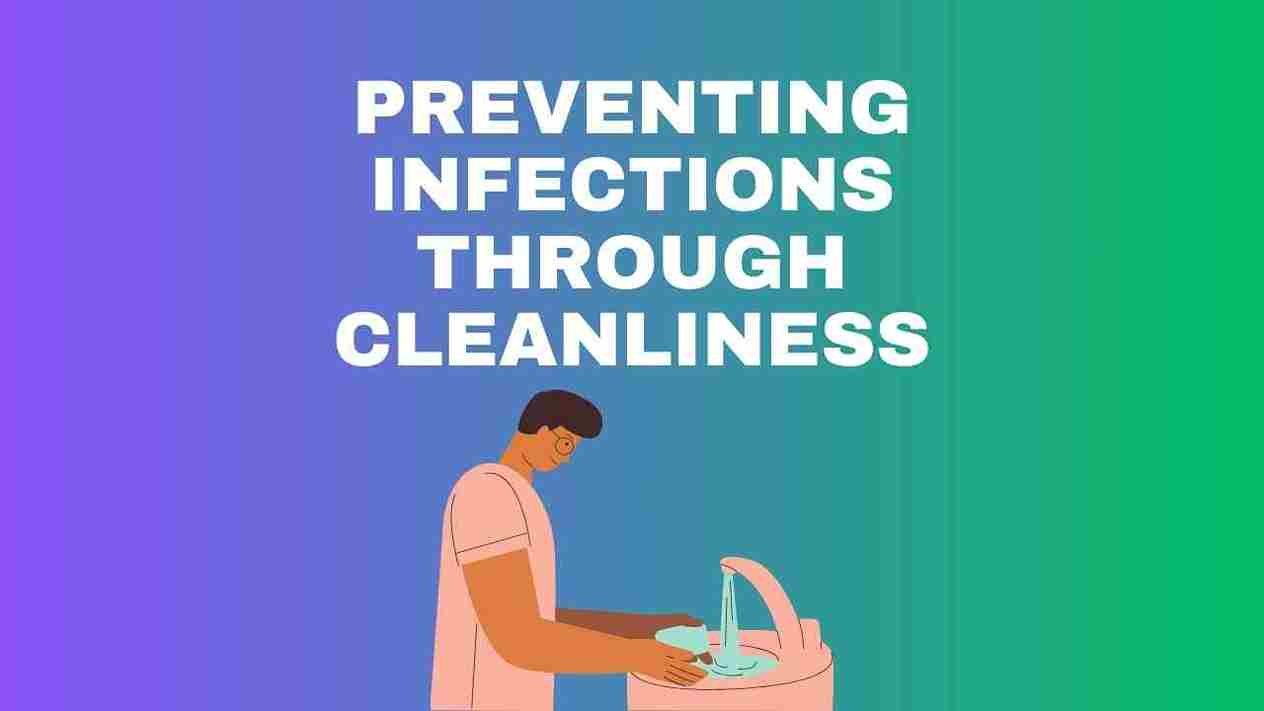In the realm of health and well-being, few principles are as fundamentally crucial as good hygiene practices. The significance of maintaining cleanliness and practicing proper hygiene cannot be overstated, especially in the context of preventing the spread of infectious diseases. In this comprehensive article, we delve into the intricate details of why impeccable hygiene is an indispensable tool in our arsenal against pathogens and illnesses.
The Foundation of Health
Maintaining good hygiene is not merely a choice but a responsibility that we all share as members of society. It is a cornerstone of public health, with far-reaching implications for individuals, communities, and the entire global population. The practice of good hygiene encompasses a variety of habits and routines, each designed to safeguard our health and well-being.
Hand Hygiene: A Simple Yet Powerful Practice
One of the most basic and effective forms of hygiene is handwashing. The simple act of washing our hands with soap and water is a formidable defense against a multitude of pathogens. Our hands serve as conduits for germs, as we touch various surfaces and objects throughout the day. When we neglect hand hygiene, we risk introducing these harmful microorganisms into our bodies.
Proper handwashing involves thorough scrubbing for at least 20 seconds, ensuring that all areas, including the backs of the hands and under the nails, are cleaned. This practice is especially vital before and after meals, after using the restroom, and after being in public spaces.
Personal Hygiene: Nurturing Overall Well-Being
Beyond hand hygiene, personal cleanliness plays a pivotal role in maintaining our health. Regular showers or baths, dental care, and grooming routines are essential aspects of personal hygiene. Proper dental care, for instance, not only ensures fresh breath and a confident smile but also prevents dental issues that can lead to systemic health problems.
Environmental Hygiene: A Shared Responsibility
Cleanliness extends beyond ourselves to the environments we inhabit. Public places, homes, workplaces, and healthcare facilities all require meticulous upkeep. Regular cleaning and disinfection of surfaces, proper waste disposal, and the maintenance of adequate ventilation are integral components of environmental hygiene. In healthcare settings, stringent hygiene protocols are even more critical to prevent the spread of infections.
The Battle Against Infectious Diseases
Now, let us delve into the heart of the matter: how good hygiene practices are our most potent weapons in the battle against infectious diseases.
Halting the Transmission
Infections often spread through various modes, including direct contact, airborne transmission, and contamination of surfaces. By practicing good hygiene, we create barriers that interrupt the transmission cycle of pathogens. Handwashing, in particular, disrupts the chain of infection by removing germs from our hands before they can enter our bodies or be transferred to others.
Reducing Disease Burden
A society that embraces hygiene practices experiences a significant reduction in the burden of infectious diseases. Fewer illnesses mean fewer hospitalizations, reduced strain on healthcare systems, and a healthier, more productive populace. This, in turn, contributes to economic stability and prosperity.
Protecting Vulnerable Populations
One of the most compelling reasons to prioritize hygiene is to protect vulnerable populations, such as the elderly, infants, and individuals with weakened immune systems. By maintaining impeccable hygiene, we create a protective shield around those who are most susceptible to severe infections.
Also check: The Role of Nutrition in Mental Health
The Global Impact of Hygiene
Beyond individual and community benefits, the impact of good hygiene reverberates across the globe. It plays a pivotal role in public health on a national and international scale.
Pandemic Preparedness
The outbreak of global pandemics underscores the critical importance of hygiene. During such crises, hygiene practices become the first line of defense. The simple act of washing hands and wearing masks can make a profound difference in curbing the spread of infectious diseases.
International Cooperation
In an interconnected world, the significance of hygiene extends to international cooperation. Nations must collaborate to combat global health threats. Hygiene practices are at the core of strategies to prevent and control pandemics, making them a shared responsibility for all nations.
Conclusion: Our Collective Responsibility
In conclusion, the power of hygiene in preventing the spread of infectious diseases cannot be underestimated. It is not a choice but a responsibility that each of us bears. By diligently practicing good hygiene, we protect ourselves, our communities, and the world at large from the devastating effects of infections.
As we navigate the challenges of the modern world, let us remember that something as simple as washing our hands can be a formidable force for good. Let hygiene be our shield, our safeguard, and our commitment to a healthier, safer future.









